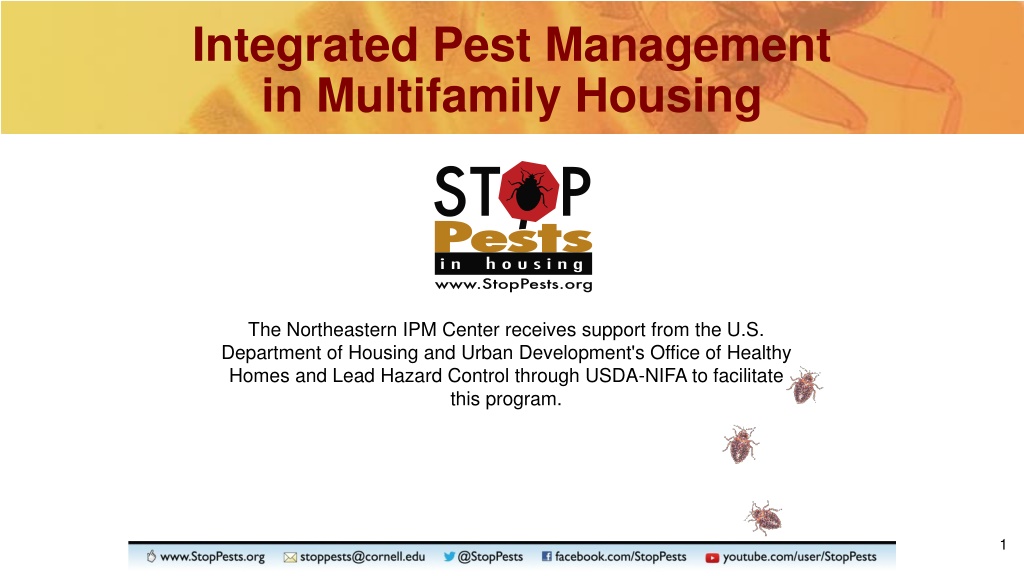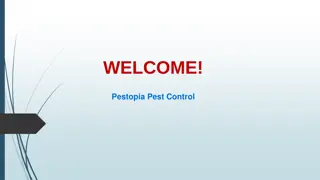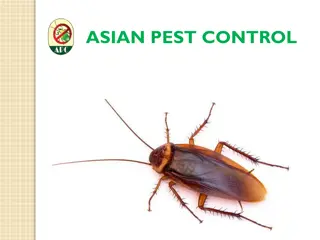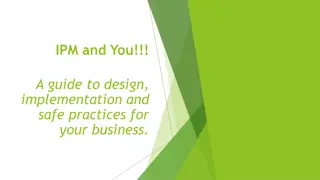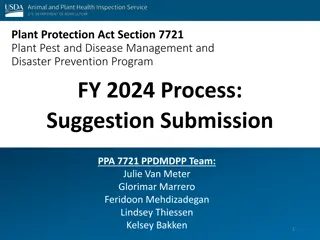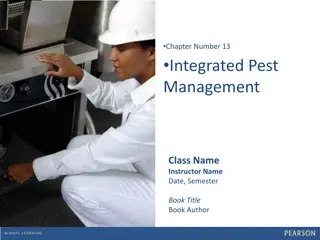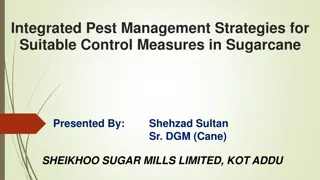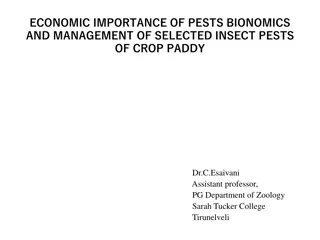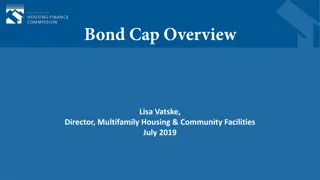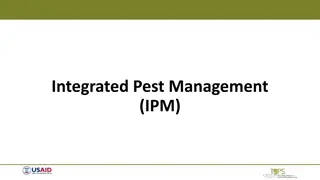Integrated Pest Management in Multifamily Housing: Protecting Health and Homes
Learn about the essential Integrated Pest Management (IPM) program supported by the U.S. Department of Housing and Urban Development for multifamily housing. Discover the importance of controlling pests like cockroaches, rodents, and bed bugs, along with the health threats they pose. Find out how IPM makes homes healthier and what role you can play in the IPM team. Prioritize pest concerns affecting public health, such as cockroaches, rodents, mosquitoes, ticks, and more.
Uploaded on Oct 09, 2024 | 0 Views
Download Presentation

Please find below an Image/Link to download the presentation.
The content on the website is provided AS IS for your information and personal use only. It may not be sold, licensed, or shared on other websites without obtaining consent from the author. Download presentation by click this link. If you encounter any issues during the download, it is possible that the publisher has removed the file from their server.
E N D
Presentation Transcript
Integrated Pest Management in Multifamily Housing The Northeastern IPM Center receives support from the U.S. Department of Housing and Urban Development's Office of Healthy Homes and Lead Hazard Control through USDA-NIFA to facilitate this program. 1
Its Your Course! Take care of yourself Ask questions as we go One conversation at a time 3
Resources The materials are yours to keep Copies of presentation slides Pest fact sheets Workplan (our plan at end of each module) Networked resources are available at: www.StopPests.org 4
By the end of today, you will know Why pests are health threats How to control cockroaches, rodents, and bed bugs Why Integrated Pest Management (IPM) is the most effective way to control pests Your role in the IPM team 5
What position do you have on the IPM team? Please tell us: 1. Your name 2. Your Job title or role 3. Your greatest pest concern 6
Pests cause problems Trigger/cause asthma and allergies Bite Contaminate food Lead people to overreact and ignore pesticide labels Transmit disease Hitchhike in belongings Violate housing codes IPM makes homes healthier! 7
Priority Pests Cockroaches cause asthma in infants, trigger asthma attacks, and contaminate food Rodents such as mice and rats carry diseases, bite, destroy property, may cause fires, and may trigger asthma attacks Bed Bugs and their bites are a nuisance and are expensive to eliminate 8
Other public health pests Mosquitoes transmit West Nile Virus Need standing water Ticks transmit Lyme Disease Get on people from bushes and rodents Fleas cause itchy welts Come into buildings on pets and wild animals Bird and rodent mites make us itch May move into a unit when the wild host moves out Lice make us itch Spread on used or shared items and via person-to-person contact Dust mites cause asthma Flourish with high humidity and poor sanitation 9
How will you fight pests now? Exterminator is now a Pest Management Professional (PMP) 11
What is IPM? Integrated: Uses multiple approaches that work together Pest: What the multiple approaches work to fight Management: Use of the most economical means with the least possible risk to people, property, and the environment 12
Inspect & Monitor IPM Program Lifecycle Evaluate Success Identify Scale the Response Use Multiple Tools
What all pests need Food Water Shelter Food Shelter Water 14
The IPM team Property Manager Pest Management Professional Resident IPM Coordinator Landscaping Services Resident Support Services Maintenance crew Procurement Specialist Janitorial/ Custodial 15
What you will gain Cost savings: Lower pest management costs over time A healthier building: Fewer asthma attacks, less exposure to pesticides, and less of a chance you will take pests home Fewer complaints: A Boston Housing Authority development reduced cockroach work orders by 68% after one year of IPM Fewer pests: You can stop infestations from growing and spreading disease 16
We do IPM because it is the right thing to do and because it works. Allowing our residents to live in a pest-free home is a basic service as well as a huge quality of life issue. Gail Livingston Director of Operations and Property Management Boston Housing Authority 17
